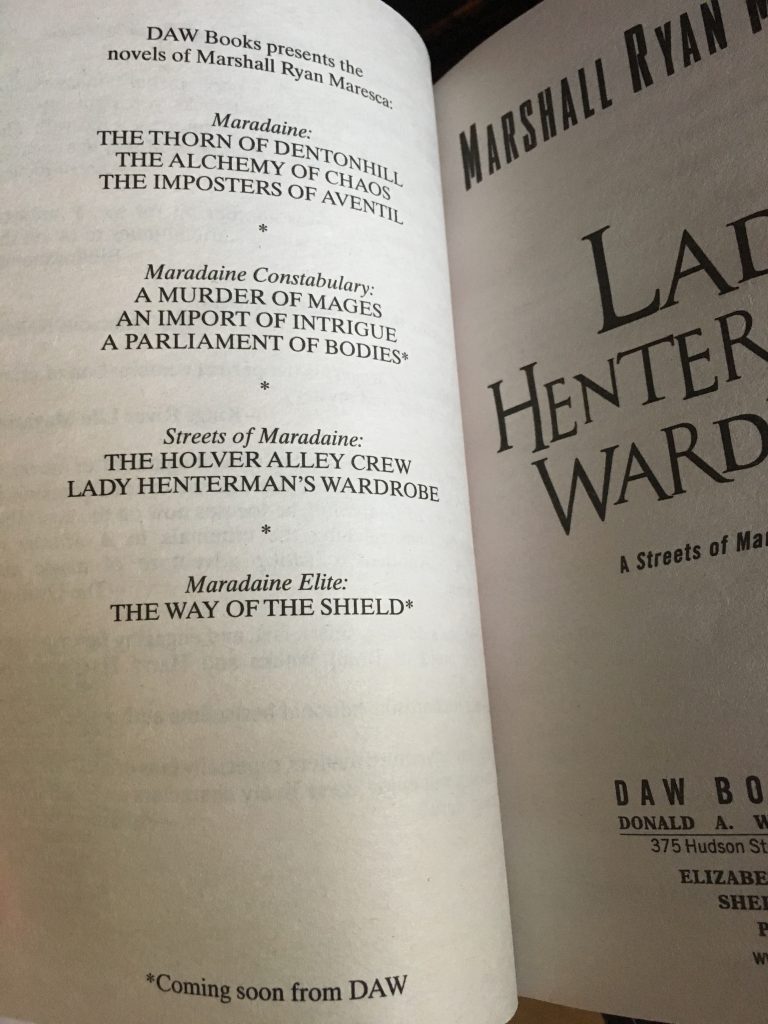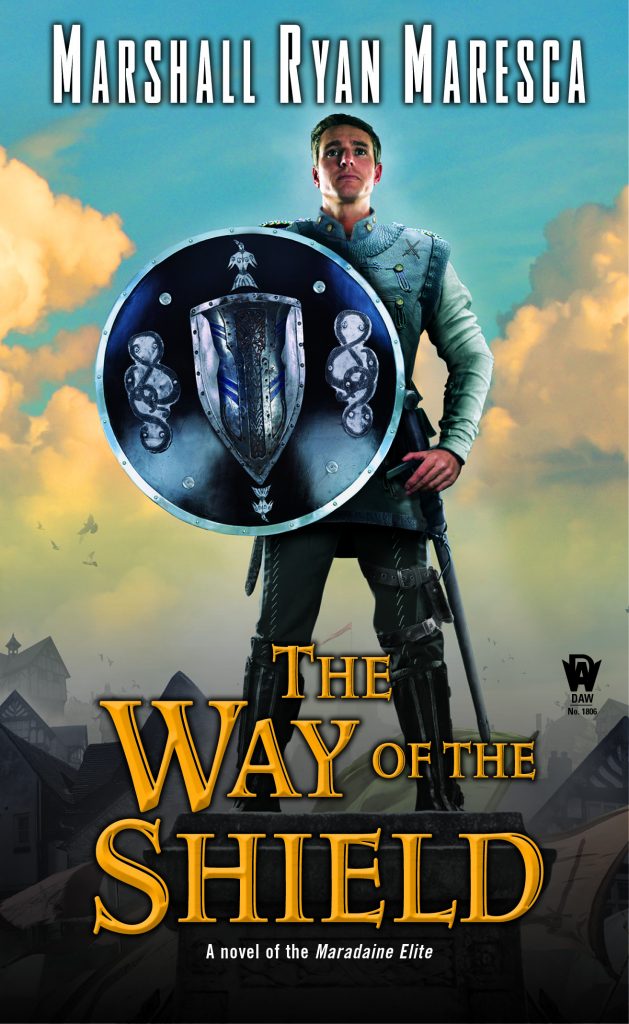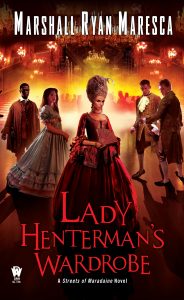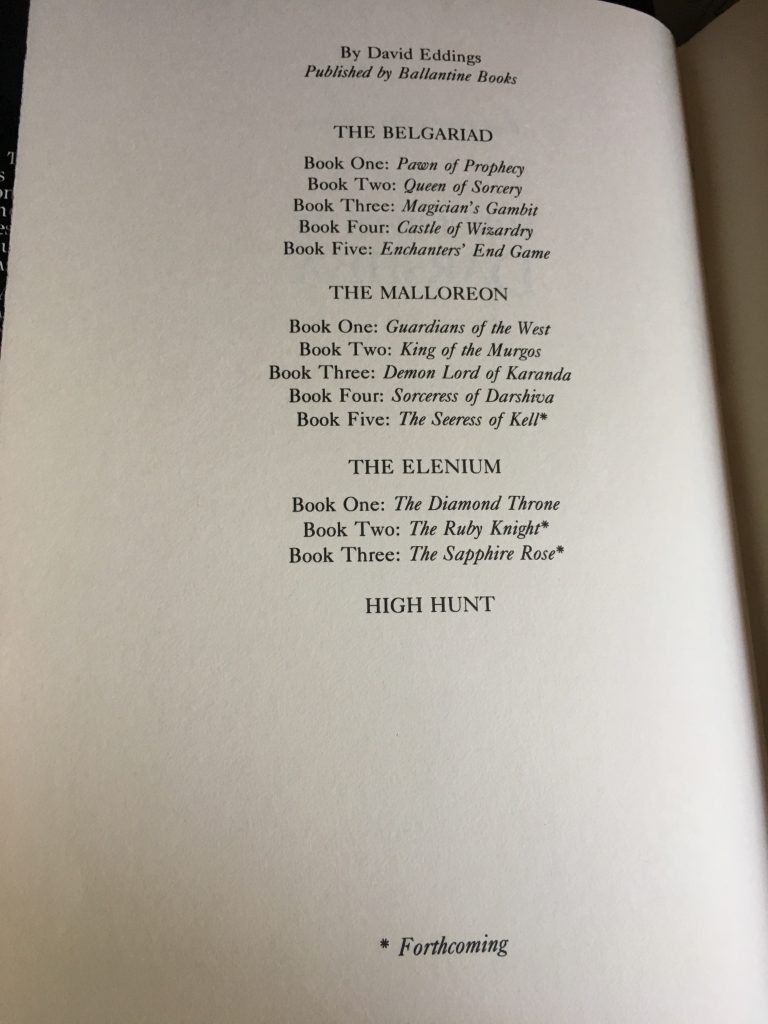I do not have an idealized writing space. At all. I mean, I don't have a space-- I have two rolling bags that serve as my rolling-office. Now, I do have mobility, and that can be great. I can work anywhere. Coffee shop. Book store. Back of the car. Right now I'm on the walking desk in the bedroom, which is the most "permanent" workspace I have. But I share the walking desk with my wife-- because we both need it and enjoy it. And it's less than ideal.
For one, it's in the bedroom, which isn't great working energy if you can avoid it. I mean, like I said, I can work anywhere and do, but if you are going to craft an ideal space, it's a space that is explicitly for working. The space serves that purpose alone.
So, what would that look like?
First is the desk. It needs to be large enough to have the laptop and a couple notebooks spread out. I need to be able to work on the computer and work by hand on it, sometimes back and forth at the same time. Also, good legroom underneath. I've learned the hard way that that is critical.
Next, the chair needs to be right. I've had a lot of bad chairs. Good back support for long hours sitting in it.
Third, a separate chair for reading. That's a comfy, lounging chair. Or maybe a small couch.
One wall is windows with good natural light. One wall is bookshelves. One wall is white boards, corkboards, maps- a space to plan out the work in a large format.
Enough floor space to pace around, lay out notecards on the floor.
And a door that stays shut when I'm working.
That's what would be ideal for me.
For now-- work wherever. Work however. The work is what matters, not the space.
But the space would be nice.
Thursday, March 29, 2018
Monday, March 26, 2018
The Promise of the Asterisk
So, I've been on a bit of a clean and organize binge of late, and in doing so pulled down my copy of The Sorceress of Darshiva. I bought this book right when it came out, so the conclusion to The Malloreon, The Seeress of Kell was still a year away, and the new series, The Elenium, was just getting started. And all that was reflected in the front matter of the book.
Oh, there was something ever so tantalizing about that asterisk and its promise of a book that was Forthcoming. It let you know that there was a PLAN in the works.
So I've always gotten excited when I get my author copies of each new book, and right there in the front matter it lays out a little more of a promise, a bit more of The Plan.

I don't know why, but it always thrills me. I think because it is that explicit promise I'm making to the readers: More is on the way. And that promise is a thing I take very seriously. I don't like to tell you that a book is coming unless I know it's coming. I make good on what I tell you I'm going to do.
So I need to get back to it, so I can keep fulfilling that promise.
Oh, there was something ever so tantalizing about that asterisk and its promise of a book that was Forthcoming. It let you know that there was a PLAN in the works.
So I've always gotten excited when I get my author copies of each new book, and right there in the front matter it lays out a little more of a promise, a bit more of The Plan.

I don't know why, but it always thrills me. I think because it is that explicit promise I'm making to the readers: More is on the way. And that promise is a thing I take very seriously. I don't like to tell you that a book is coming unless I know it's coming. I make good on what I tell you I'm going to do.
So I need to get back to it, so I can keep fulfilling that promise.
Thursday, March 22, 2018
The Power of the Review
Reviews are a critical part of a novelist's life. We get them, we obsess over them, and we need them.
I mean, I read every one that I see. Every one. Even the ones that hurt-- and oh lord, do some of them hurt. But I see that as a necessary thing. The hurtful, rip-the-bandaid-off aspect of the bad reviews are part of the process. It's part of understanding that you're never going to please everyone.
Remember: even the great classics, even your most favorite, beloved books have 1-star reviews on Amazon.
But I want to talk to the readers out there: remember that reviews are YOUR tool. If you have a book you love, a writer you adore, then the best thing you can do is get on Amazon, Goodreads and anywhere else you can go and SCREAM IT TO THE HILLTOPS that you love that book. You will make that writer's day.
So go do that. It can be for one of mine, if you're so inclined, or someone else. There are plenty of worthy writers who need a bit of your love. So go give some, because it doesn't cost you anything. Love is a self-replenishing commodity, spread it around.
I mean, I read every one that I see. Every one. Even the ones that hurt-- and oh lord, do some of them hurt. But I see that as a necessary thing. The hurtful, rip-the-bandaid-off aspect of the bad reviews are part of the process. It's part of understanding that you're never going to please everyone.
Remember: even the great classics, even your most favorite, beloved books have 1-star reviews on Amazon.
But I want to talk to the readers out there: remember that reviews are YOUR tool. If you have a book you love, a writer you adore, then the best thing you can do is get on Amazon, Goodreads and anywhere else you can go and SCREAM IT TO THE HILLTOPS that you love that book. You will make that writer's day.
So go do that. It can be for one of mine, if you're so inclined, or someone else. There are plenty of worthy writers who need a bit of your love. So go give some, because it doesn't cost you anything. Love is a self-replenishing commodity, spread it around.
Monday, March 19, 2018
Quick Check In
Hello, readers. Finishing up many things on this end, including the final edit of A Parliament of Bodies. It's a heavy time in the word-mines, and once that's turned in (and a few organizational/cleaning projects at home), it'll be time to focus on What's Next. In the mean time, here's the new cover banner with Way of the Shield added. I'm really excited about this cover, this book and this new series.


Thursday, March 15, 2018
My Favorite Line for Inspiration
Quick post here, as I'm pretty busy this week, but the question of the week over at SFF Seven is for favorite inspirational quote. And mine is my perennial answer whenever this comes up, Jimmy Dugan's response from A League of Their Own when told that baseball "just got too hard".
"It's supposed to be hard. If it wasn't hard, everyone would do it. The hard is what makes it great."
That's a line I remind myself of whenever I need that push, whenever things feel too much of a challenge, too unsurmountable. And with that, I push through.
"It's supposed to be hard. If it wasn't hard, everyone would do it. The hard is what makes it great."
That's a line I remind myself of whenever I need that push, whenever things feel too much of a challenge, too unsurmountable. And with that, I push through.
Monday, March 12, 2018
Cover for THE WAY OF THE SHIELD
There is something about a hero with a shield.
There is something about a hero who strives to not just protect people, but to be a beacon, a symbol, a source of hope for those around them.
When I was figuring out the four different story paths we would see in Maradaine, I know one of them was going to have be something of a "classic" hero-- that big boy scout of a hero that is the heart of and spirit of what the best of Maradaine and Druthal could be. A person who not only understood the ideals, but tried to live by them-- even if they stumble.
They needed to be a character that embodied hope and light, even as things went dark around them.
That's what a hero who carries a shield means. That's why Dayne is part of the Tarian Order, who pledge to put themselves between the helpless and harm. And that's what I wanted the cover of the first book of this new series to evoke. And did Paul Young deliver.

The Way of the Shield comes out on October 2, 2018.
Dayne Heldrin always dreamed of being a member of the Tarian Order. In centuries past, the Elite Orders of Druthal were warriors that stood for order, justice, and the common people. But now, with constables, King’s Marshals, and a standing army, there is little need for such organizations, and the Tarian Order is one of the last remnants of this ancient legacy. Nevertheless, Dayne trained his body and mind, learned the arts of defense and fighting, to become a candidate for the Tarian Order.
When a failed rescue puts Dayne at fault for injuring the child of a powerful family, his future with the Tarians is in jeopardy. The Parliament controls the purse strings for the Order, and Dayne has angered the wrong members of Parliament. He returns to the capital city of Maradaine in shame, ready to be cast out of the Order when the period of his candidacy ends.
Dayne finds Maradaine in turmoil, as revolutions and dark conspiracies brew around him, threatening members of Parliament and common people alike. Dayne is drawn into the uproar, desperate not to have one more death or injury on his conscience, but the Order wants him to stay out of the situation. The city threatens to tear itself apart, and Dayne must decide between his own future and his vow to always stand between the helpless and harm.
Goodreads Page for THE WAY OF THE SHIELDAvailable at Amazon, Barnes & Noble, IndieBound and more!
Thursday, March 8, 2018
Different Mediums of Writing: I Once Was A Playwright
So, my bio says "playwright" evening though I've not done much playwriting of late. And most of my plays have been short ones, which is funny, because I don't think I'm very good at short stories, but I can do short plays pretty well.
For a long while, I regularly participated in the "Out of Ink" project, where we would receive a set of three "ingredients" for a play on Friday evening, and by Sunday afternoon we were supposed to have written a ten-minute play based on those ingredients, and then eight were chosen for a workshop production. Here's a smattering of my favorites from those plays.
2000: Last Train Out of Illinois My first year with Scriptworks, the rules involved boots, a character directly addressing the audience, and someone performing an “aria”. I had, at the time, had the vague idea of a Tom Waitsish Musical called “Last Train Out of Illinois”, but all I had was Atmosphere and an Ending. Which is just fine for a ten-minute piece.
2003: Danger Girl’s Night Off The rules dictated 1. something involving superheroes and 2. a seduction, so I immediately thought of a grown-up sidekick who just wanted to have a date night. This was a lot of fun.
2007: Hourglass I’m really pleased with this one. The rules involved 1. A physical transformation on stage, 2. a secret and 3. a piece of music connecting to a memory. This may have been, for me, the most synergous set of rules. The discovery of an old hourglass reminds an old woman of the true paternity of her child. Hannah Kenah did really lovely work on stage going from 107 to 20.
2008: Ten Minutes Ago The play goes backwards! That was the rule that had to define this one. The idea I was struck with here was having an innocuous instigation (a woman answering her door) lead to events that had disastrous consequences (her husband and a stranger dead in her living room), and then show it Consequences-Events-Instigation. This one was challenging to stage, but enjoyable.
2010: Entropy “Time is Running Out”, “Use the Beginning and End of Finnegan’s Wake” and “A Ceremony of Forgetting”. How does this NOT say “two people stuck in a time loop”? OK, it does to me, because I’m a sci-fi geek.
2011: Slept the Whole Way Again, the rules sent me to an SF place: the play needed to span 3000 years and have 300 characters. So a cryosleep ship that missed its target and kept everyone in stasis for 3000 years made perfect sense to me.
2013: The Observer Effect This grew out a strange idea of someone being labeled "history's greatest monster" due to a mistake-- and ultimately not even their own mistake. It's deeply silly.
So, here's the thing-- if you're in a play-producing mood? You got a need or hankering to put on a ten-minute play? Especially in a science-fictional venue, as most of these are sci-fi plays? HAVE AT 'EM. Seriously, you want to produce them, go for it. They're silly, they're fun, and they tend to be production-cost light. Only rule I have is: let me know. That's it.
I do kind of miss playwriting. Someday I'll do another one, or pull out one of the ones I wrote and never produced and give it another polishing pass. But right now, I've got enough things on my plate. Back down to the word mines.
For a long while, I regularly participated in the "Out of Ink" project, where we would receive a set of three "ingredients" for a play on Friday evening, and by Sunday afternoon we were supposed to have written a ten-minute play based on those ingredients, and then eight were chosen for a workshop production. Here's a smattering of my favorites from those plays.
2000: Last Train Out of Illinois My first year with Scriptworks, the rules involved boots, a character directly addressing the audience, and someone performing an “aria”. I had, at the time, had the vague idea of a Tom Waitsish Musical called “Last Train Out of Illinois”, but all I had was Atmosphere and an Ending. Which is just fine for a ten-minute piece.
2003: Danger Girl’s Night Off The rules dictated 1. something involving superheroes and 2. a seduction, so I immediately thought of a grown-up sidekick who just wanted to have a date night. This was a lot of fun.
2007: Hourglass I’m really pleased with this one. The rules involved 1. A physical transformation on stage, 2. a secret and 3. a piece of music connecting to a memory. This may have been, for me, the most synergous set of rules. The discovery of an old hourglass reminds an old woman of the true paternity of her child. Hannah Kenah did really lovely work on stage going from 107 to 20.
2008: Ten Minutes Ago The play goes backwards! That was the rule that had to define this one. The idea I was struck with here was having an innocuous instigation (a woman answering her door) lead to events that had disastrous consequences (her husband and a stranger dead in her living room), and then show it Consequences-Events-Instigation. This one was challenging to stage, but enjoyable.
2010: Entropy “Time is Running Out”, “Use the Beginning and End of Finnegan’s Wake” and “A Ceremony of Forgetting”. How does this NOT say “two people stuck in a time loop”? OK, it does to me, because I’m a sci-fi geek.
2011: Slept the Whole Way Again, the rules sent me to an SF place: the play needed to span 3000 years and have 300 characters. So a cryosleep ship that missed its target and kept everyone in stasis for 3000 years made perfect sense to me.
2013: The Observer Effect This grew out a strange idea of someone being labeled "history's greatest monster" due to a mistake-- and ultimately not even their own mistake. It's deeply silly.
So, here's the thing-- if you're in a play-producing mood? You got a need or hankering to put on a ten-minute play? Especially in a science-fictional venue, as most of these are sci-fi plays? HAVE AT 'EM. Seriously, you want to produce them, go for it. They're silly, they're fun, and they tend to be production-cost light. Only rule I have is: let me know. That's it.
I do kind of miss playwriting. Someday I'll do another one, or pull out one of the ones I wrote and never produced and give it another polishing pass. But right now, I've got enough things on my plate. Back down to the word mines.
Monday, March 5, 2018
 We're finally here at the launch week for LADY HENTERMAN'S WARDROBE-- the second Streets of Maradaine novel and the seventh novel total in the full Maradaine sequence.* I'm thrilled and excited, as always. I really love this book-- but of course, I love all of them. But it was a lot of fun to write, as I loved getting back to writing Asti and Verci Rynax and all their friends. I wouldn't say they're my favorite characters to write-- because how can you decide something like that-- but I do love writing them talking to each other.**
We're finally here at the launch week for LADY HENTERMAN'S WARDROBE-- the second Streets of Maradaine novel and the seventh novel total in the full Maradaine sequence.* I'm thrilled and excited, as always. I really love this book-- but of course, I love all of them. But it was a lot of fun to write, as I loved getting back to writing Asti and Verci Rynax and all their friends. I wouldn't say they're my favorite characters to write-- because how can you decide something like that-- but I do love writing them talking to each other.**And I'm thrilled with the response the book has been getting. RT Reviews calls it a Top Pick with
 . IO9 named it one of the books "Well Worth Checking Out" this month, and Barnes & Noble SF&F Blog listed it among the best fantasy books for the month. Publishers Weekly said it features "a complete and consistent fantasy world populated with lively characters". The Speculative Herald says, "I’m happy to report that this follow up is just as exciting and fun as the last one", and SF&F Reviews says, "This is kick-arse fantasy."
. IO9 named it one of the books "Well Worth Checking Out" this month, and Barnes & Noble SF&F Blog listed it among the best fantasy books for the month. Publishers Weekly said it features "a complete and consistent fantasy world populated with lively characters". The Speculative Herald says, "I’m happy to report that this follow up is just as exciting and fun as the last one", and SF&F Reviews says, "This is kick-arse fantasy."So what are you waiting for?
Mixing high fantasy and urban fantasy, the second novel of the Streets of Maradaine series follows the Rynax brothers’ crew of outlaws as they attempt their biggest heist yet and restore justice to the common people.
The neighborhood of North Seleth has suffered–and not just the Holver Alley Fire. Poverty and marginalization are forcing people out of the neighborhood, and violence on the streets is getting worse. Only the Rynax brothers–Asti and Verci–and their Holver Alley Crew are fighting for the common people. They’ve taken care of the people who actually burned down Holver Alley, but they’re still looking for the moneyed interests behind the fire.
The trail of breadcrumbs leads the crew to Lord Henterman, and they plan to infiltrate the noble’s house on the other side of the city. While the crew tries to penetrate the heart of the house, the worst elements of North Seleth seem to be uniting under a mysterious new leader. With the crew’s attention divided, Asti discovers that the secrets behind the fire, including ones from his past, might be found in Lady Henterman’s wardrobe.
READ AN EXCERPT
Goodreads Page for LADY HENTERMAN’S WARDROBE
Available at Amazon , Barnes & Nobles, IndieBound and more!
*- Funny thing, you could list the full Maradaine sequence two ways: release order, or in-world chronological. Lady Henterman's Wardrobe is the seventh book by either metric.
**- And I'm excited to get back to writing them, and Veranix, and all three of them together, when I get started on the third Streets novel, The Fenmere Job.
Thursday, March 1, 2018
Keeping Stories From Getting Too Complex
The question put forth this week: How do you keep your story from being too complex?
And I think-- you're asking me, the person with four interlocking series running concurrently? You think I know how to keep things too complex?
Well, in a real way, the multi-series tactic is my way of keeping things from getting too complex.
Rather than one, enormous sprawling story of epic epicness and a cast of a dozen protagonists, I have four relatively contained, discrete storylines in individual books. That helps me keep my head clear of the different threads, and hopefully keeps readers from getting to bogged in the weeds, either.
Hopefully.
(Though one of my beta readers had a "who is this guy again?" moment with a key secondary character in the draft of A Parliament of Bodies, so that was a good note to reclarify his introduction...)
But I am writing something deeply complex, and it's crucial I keep it all straight. That's why spreadsheets, timelines (let's hear it for Aeon Timeline!), outlines and other organizational tools are so crucial to me. Part of the point is making that work seem invisible to the reader, so they just jump on the roller coaster and go.
Hopefully, that's what I'm doing. Now back to it.
And I think-- you're asking me, the person with four interlocking series running concurrently? You think I know how to keep things too complex?
Well, in a real way, the multi-series tactic is my way of keeping things from getting too complex.
Rather than one, enormous sprawling story of epic epicness and a cast of a dozen protagonists, I have four relatively contained, discrete storylines in individual books. That helps me keep my head clear of the different threads, and hopefully keeps readers from getting to bogged in the weeds, either.
Hopefully.
(Though one of my beta readers had a "who is this guy again?" moment with a key secondary character in the draft of A Parliament of Bodies, so that was a good note to reclarify his introduction...)
But I am writing something deeply complex, and it's crucial I keep it all straight. That's why spreadsheets, timelines (let's hear it for Aeon Timeline!), outlines and other organizational tools are so crucial to me. Part of the point is making that work seem invisible to the reader, so they just jump on the roller coaster and go.
Hopefully, that's what I'm doing. Now back to it.
Subscribe to:
Posts (Atom)


